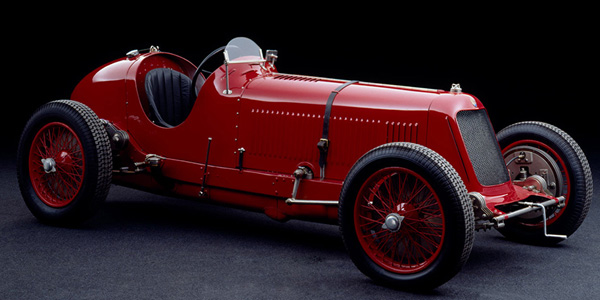The Greatest Maserati's
|
Recently Sold for $104,820 Start of Production 1933 End of Production 1935 Victories 1 Chasis Beams with SteelL Section Cross-Members Length 3,850 MM Wwidth 1,570 MM Height 1,200 MM Wheelbase 2,560 MM Weight 785 KG Engine L8, FRONT, Longitudinally Mounted Displacement 2,991.4 C.C. Power 176 KW (240 HP) AT 5,500 RPM Top Speed 250 KM/H Transmission Manual 4 Speed |
|
1933 Maserati 8CM |
|
|
Although Maserati did not yet have much
experience in Grand Prix racing cars, the development of the Maserati
8CM was completed very quickly. The first car, with chassis number 3005,
was completed as early as March 1933, and was driven to victory in the
Tunis Grand Prix of the same year by Raymond Sommer. However, its debut
was not very promising, since the car had to be withdrawn due to
technical problems. Nonetheless, these teething troubles were soon dealt
with and by the time of the Montecarlo Grand Prix, the second car, with
chassis number 3006, was ready for delivery to Zendher, who took part in
the Monaco event. The results achieved by this first version of the 8CM
did not impress because its chassis was too flexible to withstand the
forces generated by the powerful eight cylinder engine and the huge 400
millimetre drum brakes. The drivers who complained about these problems,
which arose from the excessively lightweight chassis derived from the
Maserati 4CM 1100, included Giuseppe Campari. At the time, Maserati was
focusing more on innovations in engine design than on research into
chassis construction. The car mounted a 8-cylinder 2991 cm 3 straight engine and 400 m drum brakes. Maximum power was around 220-240 hp at 5,500 rpm. The chassis had been derived from that of the 4CM 1100, which proved to be too light and was subject to flex. The situation improved when driver Tazio Nuvolari asked a strengthening of the front part, and the weight reduced from 785 to 750 kg. The car debuted at the Tunis Grand Prix in 1933 and, in that year, won the Belgian Grand Prix and others, raced by Nuvolari. In 1934-1935, however, it struggled to take the pace of the Alfa Romeo, Mercedes and Auto Union, and was replaced by the V8RI model. |


